:::
License Renewal
Last Update: Jan 22, 2024
The Tsing Hua Open-pool Reactor (THOR) is a research reactor designed by the US-based General Atomics Corporation. This reactor uses TRIGA (Training Research Isotopes-production, General Atomics) fuel and has a rated thermal power of 2 MW. THOR is currently being used for academic research and teaching in the fields of reactor physics, chemistry, and engineering, as well as for producing radioactive isotopes (such as iodine-131 medicine) for domestic hospitals. In recent years, THOR has developed the Boron Neutron Capture Therapy (BNCT) technology for medical purposes.
THOR has been in operation since 1961, with an initial operating license valid for 40 years. Its operating license was renewed for a 10-year extension in 2001 and again in 2011. The second renewal of its operating license expired on April 9, 2021. On July 28, 2020, the National Tsing Hua University (NTHU) submitted the third operating license renewal application by Article 6, Paragraph 3 of the Nuclear Reactor Facilities Regulation Act.
In order to review the operating license renewal in the most systematic and comprehensive manner, the NSC organized a task force. The task force was composed of external experts from various fields and staff members from relevant offices of the NSC. The role of the task force was to review the reports submitted by the NTHU. A total of four review meetings were convened for this case. The second review meeting was held at the NTHU, whilst a site inspection was also conducted. The external experts and the NSC staff members made a number of review comments on reports submitted by the NTHU and presented findings from the site inspection. All of the review comments and site inspection findings were addressed by the NTHU and were therefore closed. The NSC compiled all of the review results into two Safety Evaluation Reports:NRD-SER-110-01 and NRD-SER-110-02;entitled “Safety Analysis Report of Tsing Hua Open-pool Reactor License Renewal” and “Aging Management Evaluation Report of the Tsing Hua Open-pool Reactor” respectively.
Based on the conclusions of the review, THOR meets all the requirements of reactor operation, radiation protection, emergency response, nuclear safeguards, nuclear security and radioactive material management. Given the current operational conditions, maintenance routines and professional inspection results, the SSCs of THOR can sustain the required functions for reactor operational safety during the next renewed license validity period. Therefore, THOR was granted a new operating license by Article 6, Paragraph 3 of the Nuclear Reactor Facilities Regulation Act.
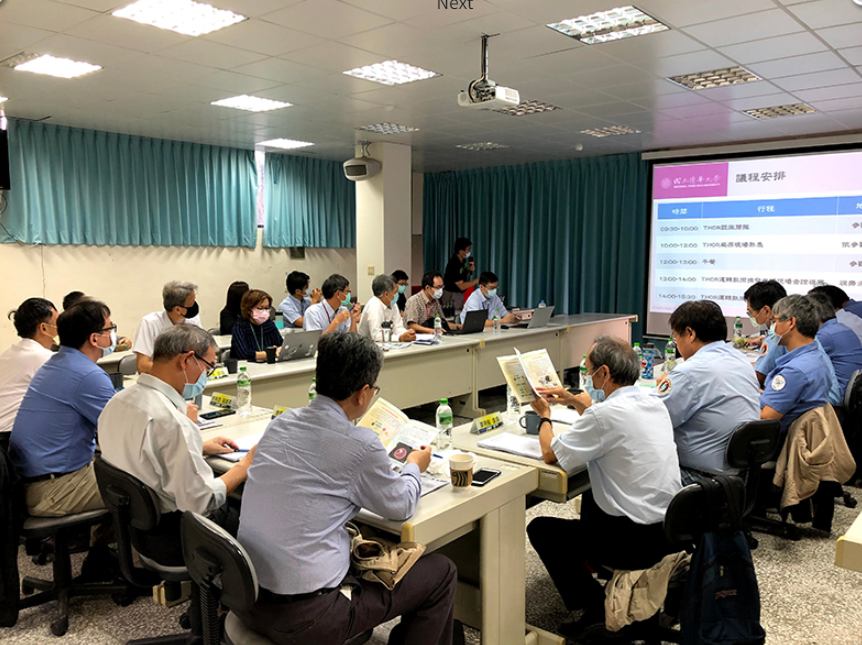
The second round review meeting of the THOR license renewal process
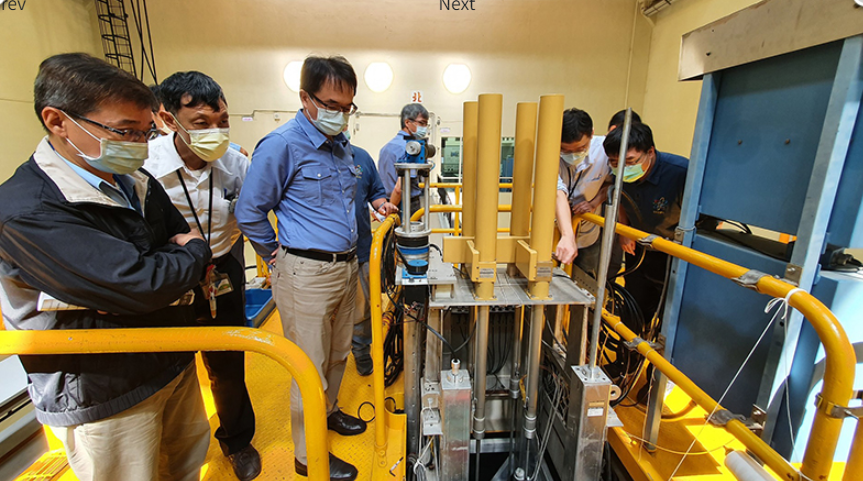
Site inspection of the THOR reactor core
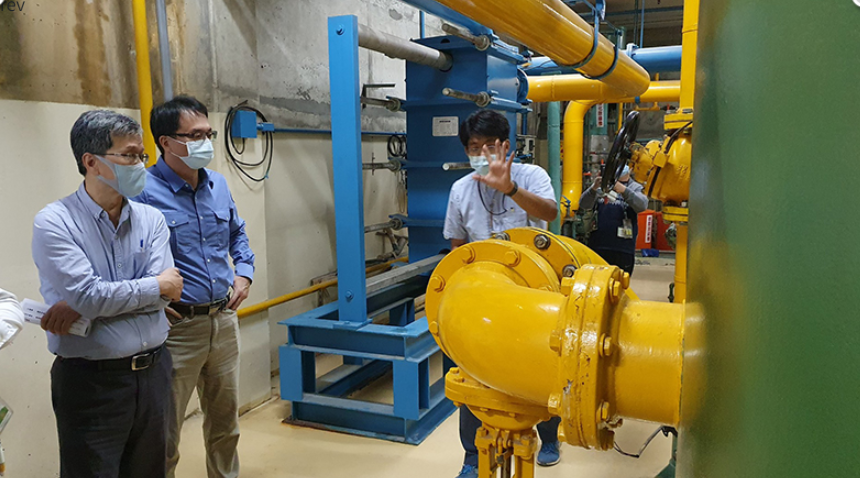
Site inspection of the THOR cooling water systems
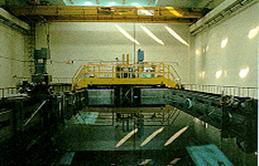 |
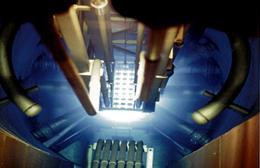 |
Tsing Hua Open-pool Reactor
(http://thor.site.nthu.edu.tw/p/412-1192-1583.php?Lang=zh-tw)
(http://thor.site.nthu.edu.tw/p/412-1192-1583.php?Lang=zh-tw)
THOR has been in operation since 1961, with an initial operating license valid for 40 years. Its operating license was renewed for a 10-year extension in 2001 and again in 2011. The second renewal of its operating license expired on April 9, 2021. On July 28, 2020, the National Tsing Hua University (NTHU) submitted the third operating license renewal application by Article 6, Paragraph 3 of the Nuclear Reactor Facilities Regulation Act.
In order to review the operating license renewal in the most systematic and comprehensive manner, the NSC organized a task force. The task force was composed of external experts from various fields and staff members from relevant offices of the NSC. The role of the task force was to review the reports submitted by the NTHU. A total of four review meetings were convened for this case. The second review meeting was held at the NTHU, whilst a site inspection was also conducted. The external experts and the NSC staff members made a number of review comments on reports submitted by the NTHU and presented findings from the site inspection. All of the review comments and site inspection findings were addressed by the NTHU and were therefore closed. The NSC compiled all of the review results into two Safety Evaluation Reports:NRD-SER-110-01 and NRD-SER-110-02;entitled “Safety Analysis Report of Tsing Hua Open-pool Reactor License Renewal” and “Aging Management Evaluation Report of the Tsing Hua Open-pool Reactor” respectively.
Based on the conclusions of the review, THOR meets all the requirements of reactor operation, radiation protection, emergency response, nuclear safeguards, nuclear security and radioactive material management. Given the current operational conditions, maintenance routines and professional inspection results, the SSCs of THOR can sustain the required functions for reactor operational safety during the next renewed license validity period. Therefore, THOR was granted a new operating license by Article 6, Paragraph 3 of the Nuclear Reactor Facilities Regulation Act.
Timeline of the NSC Review Process
| July 28, 2020 | The NTHU submitted an application for the THOR license renewal. |
| August 18, 2020 | The NSC organized a review task force and finalized the review plan. |
| September 1, 2020 | The NSC convened the first review meeting. |
| September 17, 2020 | The NSC presented the first round of review comments. |
| October 15, 2020 | The NTHU replied to the first round review comments. |
| October 30, 2020 | The NSC convened the second round review meeting and conducted a site inspection. |
| December 11, 2020 | The NTHU replied to the second round review comments. |
| December 17, 2020 | The NSC convened the third round review meeting. |
| January 15, 2021 | The NTHU replied to the third round review comments. |
| January 20, 2021 | The NSC convened the fourth round review meeting. |
| February 3, 2021 | The NTHU replied to the fourth round review comments. |
| April 1, 2021 | THOR was granted a new operating license by Article 6, Paragraph 3 of the Nuclear Reactor Facilities Control Law. |

The second round review meeting of the THOR license renewal process

Site inspection of the THOR reactor core

Site inspection of the THOR cooling water systems
